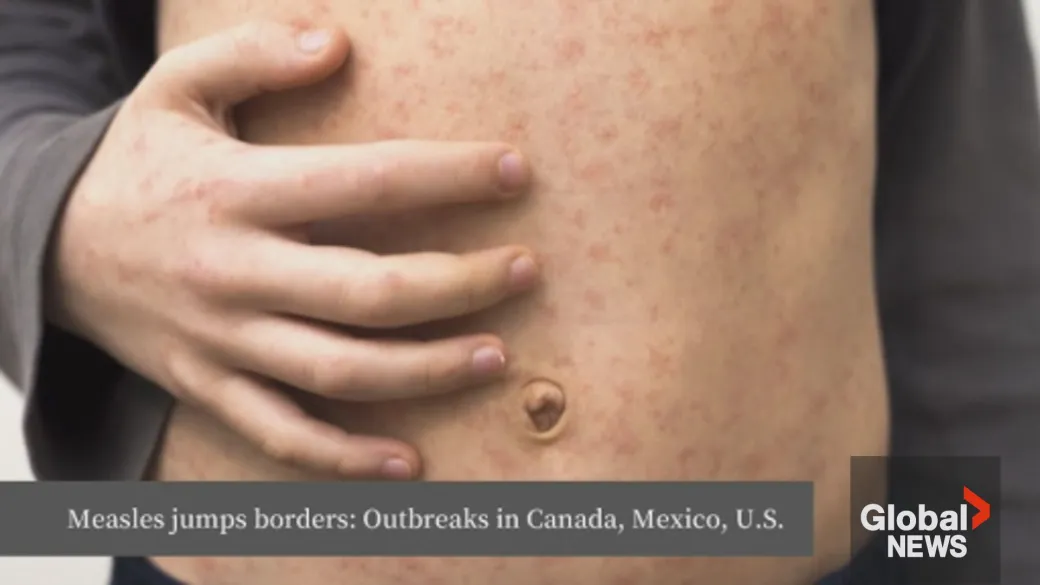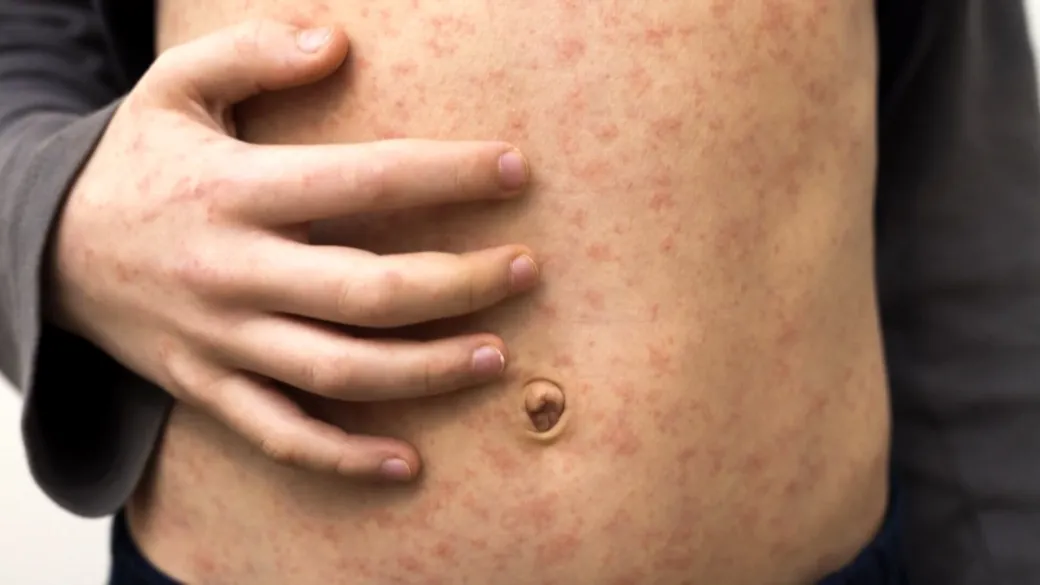Nova Scotia has confirmed a case of measles in the Halifax Regional Municipality — the first case in the province since 2023.

According to chief medical officer of health Dr. Robert Strang, the Nova Scotian had recently travelled to the United States.
Public health released a list of possible exposure locations in downtown Halifax, including a hotel, a bar and the Halifax Infirmary ER.
“This person, the length of time of that exposure in the (ER) was thankfully very short given all the steps we’ve taken for recognition and isolation,” Strang said.
“I want to emphasize … for Nova Scotians not to be alarmed by this. We fully expect this. Our best defence against measles is vaccination.”
Strang said the person in this case is an adult from the Halifax area who had been vaccinated “according to the schedule and their age when they were younger” with one dose of the vaccine. He said that people generally need two doses to be fully vaccinated.
Measles is highly contagious and can spread when an infected person breathes, coughs or sneezes. The virus can also linger for hours in the air in a room even after an infected person has left.
Strang said that although the disease is extremely contagious, previous cases — an infant in 2023 and two cases in 2017 — didn’t result in wide spread. He attributes this to the province’s vaccination rate.
“Even though our vaccine rate isn’t where it should be, we still have the majority of the people who would have been exposed … immune because of vaccination,” he said.
“So even our current vaccine rates are protecting us to some extent, but we need to make sure people are aware.”
Measles cases have been surging in parts of Canada, Mexico and the U.S.
As of April 19, there have been 1,777 confirmed and probable cases of measles reported in Canada this year, according to federal statistics. In comparison, there were 147 cases reported in all of 2024, 12 in 2023, three cases in 2022 and none in 2021.
Canada’s outbreak began last October after a travel-related case in New Brunswick sparked outbreaks there and in Ontario. New Brunswick declared its outbreak over in January, but the virus is still spreading elsewhere in Canada.

The outbreaks prompted Nova Scotia to hold measles vaccination clinics to inoculate those who may be missing a dose or were unsure of their vaccination status.
Over the last month, more than 2,000 people have received the vaccine in these clinics.
Strang said in addition to vaccination, the province is preparing the health-care system by informing providers on recognizing the signs of measles.
“Measles is, unfortunately, becoming more common, but many health-care providers haven’t seen measles here. So we’re alerting people,” he said.
“We’ve set up expedited testing pathways within the health system making sure emergency departments are recognizing early and then putting those people in isolation, which is exactly what happened on Sunday (at the ER).”
Public health says the person is recovering at home, and the department is directly notifying people who are known to have “close” contact with the case.
“This will allow us to ensure up-to-date immunization and identify further cases as quickly as possible,” Nova Scotia Health said in a release.
People who were at the following locations in Halifax on the specified dates and times should watch for symptoms:
Those who were at the ER during those hours on Sunday who are pregnant, immunocompromised or under the age of 12 months should contact public health immediately at 902-481-1697. These people may be eligible for post-exposure prophylaxis (PEP) — a blood product to prevent measles infection. The people who were at the other exposure sites on the April dates are past the date for PEP.
Symptoms ca show up between seven and 21 days after exposure. Symptoms of measles include fever, a red blotchy rash, cough, runny nose and white spots on the inside of the mouth and throat.
Strang stressed that the best protection against measles is vaccination and encouraged Nova Scotians to keep updated on their shots or to get a dose if they were unsure of their vaccination status.
In Nova Scotia, people born 1970 to 1995 were offered one dose of measles vaccine as children. He said if they have not had a second dose, they should get one now.
Those born in 1996 or later were offered two doses of measles vaccine but should get fully vaccinated now if they missed one or both doses.
Public health also recommends that infants six to 11 months of age receive a single dose of measles vaccine if they are travelling outside of Canada.
People born in 1969 or earlier are generally considered immune but can consider receiving a single dose of measles vaccine if travelling outside of Canada.
Strang said the latest data shows the vaccination rate for children is in the mid-80s.
“For many other vaccines, we’d be very happy with that kind of coverage rate. But there are some gaps that make us more vulnerable, so we have some work to do,” Strang said.
“As we grow our province, have more people coming from around the world to live here, one of the things we are focused on is how do we make sure those children coming here — we get them opportunities to get up to date with a Nova Scotia vaccine schedule.”

Heart health is crucial for overall well-being. Learn how to keep your heart healthy with these simple lifestyle changes, expert tips, and the latest medical advancements.